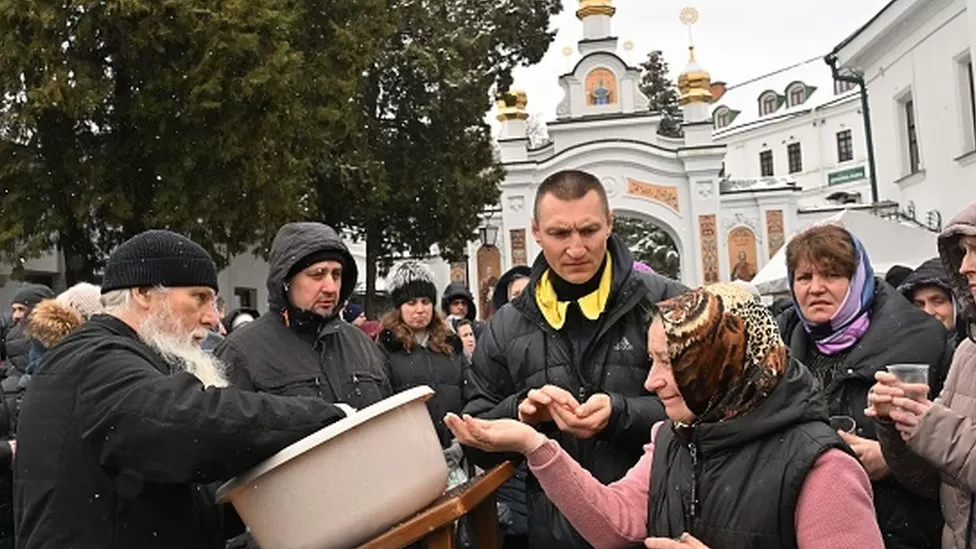Not much is known about the religious aspect of Russia’s invasion of Ukraine as the focus has, so far, been on military prowess of the warring nations and tactical advantages gained or lost on the soil of Ukraine. That it has also been turned into a religious war came to the fore when the religious head of the Russian Orthodox church, Patriarch Kirill recently exhorted the church’s followers fighting in the frontlines to care for “God’s truth”. He sermonised that the church must play its part in the battle against the secularising forces of the liberal West so as to preserve “Holy Rus(sia) and our people, living by God’s law”. President Vladimir Putin’s Russia is now relying on religion to tip the balance in its favour. This is the tactic that Putin has been using for years to wean away Ukraine’s population who follow the Orthodox church in Russia’s favour.
Patriarch Kirill has understandably become a religious pariah in the global Orthodox church for taking sides with Putin in the war in Ukraine. This has caused a setback to Kirill’s goal of turning the war into a struggle on behalf of “Holy Rus”, which is an imaginary spiritually unified territory that includes Ukraine and Belarus.
The development has not gone down well with Ukraine’s President Volodymyr Zelenskyyi and the majority of Ukraine population. This is evident from the fact that a Bill has been placed in the Ukrainian parliament that aims at closing down Ukrainian Orthodox Church (UOC) which is under the jurisdiction of the Moscow patriarchate. There have been reports that the UOC harbours some pro-Putin sympathisers. They are being purged. Churches and monasteries associated with the UOC across Ukraine are being transferred to the smaller independent Orthodox Church of Ukraine (OCU). Priests and monks known to be owing allegiance to Moscow have been served with an eviction notice. Interestingly, around three-quarters of Ukrainians follow the Orthodox Church, but a recent poll has revealed only 4% of them formally identified with the UOC. Far more believers now follow the independent church, OCU.
The development could worry Putin as it comes in the wake of Finland having been inducted into the North Atlantic Treaty Organization (NATO). Putin used the alibi of Ukraine’s move to become a NATO member for declaring war against Ukraine. But, as the war progressed without any sign of decisive victory for Russia, more countries close to Russia have started lobbying for NATO membership. Finland became the 31st member of NATO prompting US Secretary of State Antony Blinken to say at the ceremony in Brussels that both Finland and the NATO alliance were “stronger and safer” with the inclusion of the new member. The decision was taken, in a clear snub to Putin, to strengthen the alliance’s collective defence and enhance its ability to respond to security challenges in the Euro-Atlantic area. Russia’s further invasion into Ukraine last year precipitated the very thing President Putin wanted to avoid – a stronger and more unified Transatlantic Alliance.
Similarly, Putin’s strategy to use the Orthodox Church to influence Ukraine’s majority population subscribing to that denomination of Christianity has seemingly backfired. Putin and Patriarch Kirill hoped that a pro-Moscow version of conservative Christianity could serve as the spiritual anchor of a forcibly reconstituted “Russian” world incorporating Kyiv.
The UOC has been acting as an instrument of Russian soft power and influence in Ukraine. It has formed an important link of a common religious heritage in the region going back to a thousand years. But, Putin’s keenness to use it to advance his agenda on Ukraine has resulted in weakening its appeal. It now stands hugely diminished and discredited.
